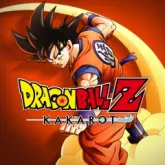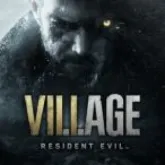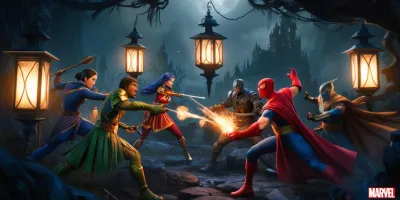Media
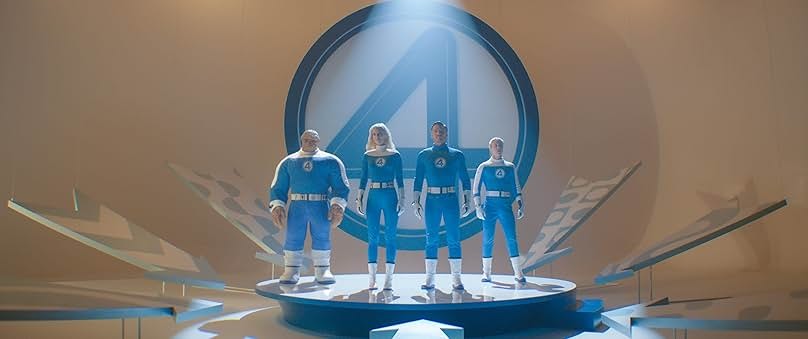
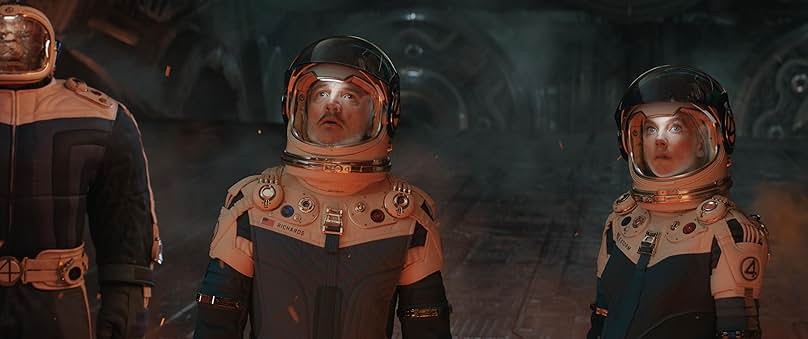
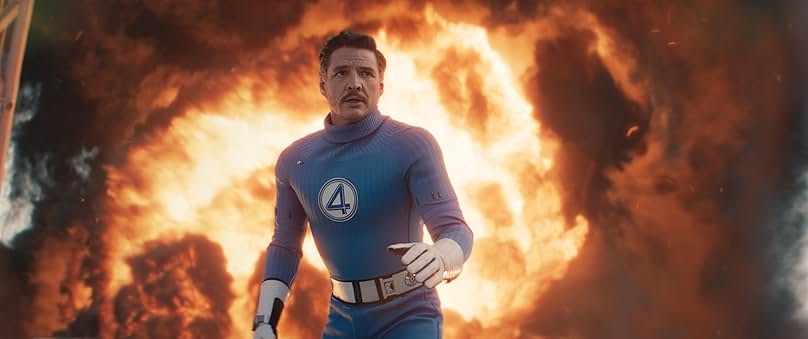
The Fantastic Four: First Steps Review

Wesley Thorne
It’s rare for a franchise to pull off a true reinvention, especially one so tangled in pop-culture memory and studio mishaps as the Fantastic Four. Yet, Matt Shakman’s “The Fantastic Four: First Steps” is not only the vanguard of Marvel’s Phase Six; it’s an exuberant rebirth, channeling the saga’s comic roots into an electrifying, visually inventive, and dramatically charged spectacle. Leaning into the MCU’s multiversal ambitions, this film also reclaims the heart of Marvel’s oldest family, mapping their journey across a landscape that’s equal parts Silver Age throwback and forward-thinking fantasy.
A Dazzling 1960s That Never Was
The setting is a riot of imagination: a parallel Earth, perpetually tinged with the optimism of America’s golden Space Race era, yet turbocharged by a Future Foundation-led age of peace and ingenuity. Shakman and his crew reimagine New York City and the wider world as exuberantly retro, their skylines and interiors popping with mid-century cool, geometric hues, and whimsical technology that’s both outlandishly archaic and slyly prescient. The production design revels in tactile effects, practical model work, and the kind of “analogue future” details rarely seen in today’s CGI-flooded blockbusters.
Here, the Fantastic Four are trusted global heroes—icons as much for their intellect and inventions as for their superpowers. Their celebrity is woven seamlessly into this universe’s DNA, evoking the sense of public responsibility and innovation that made them unique in the comics. No explanatory origin scenes slow things down; instead, the narrative lets new viewers catch up quickly, positioning the team as a unified force already grappling with the burdens of solving humanity’s biggest problems.
Unrivaled Character Depth
What truly sets “First Steps” apart is how it roots cosmic spectacle in complex, personal journeys. Pedro Pascal’s Reed Richards is an inspired choice, layering the character’s prodigious intellect with deep concern, self-doubt, and a quiet dread looming over impending parenthood. His leadership is intelligent and occasionally fumbling, making him instantly resonant in a way few superhero geniuses manage.
Vanessa Kirby’s Sue Storm emerges as a masterstroke of casting—a leader, innovator, and expectant mother whose journey encompasses both tender emotional nuance and powerful decision-making. Kirby draws on the deepest cuts of Sue’s comic lore, including the “Malice” arc, to inform her steely resolve and inner complexity—never settling for “sidekick” status, but staking her place center stage.
As Ben Grimm, Ebon Moss-Bachrach provides the movie’s soul, his motion-capture performance just as vivid and moving as any live-action turn. His Thing is brusque but open-hearted, wrestling with newfound vulnerability and a longing for normalcy, but always ready to defend his makeshift family. The visual effects team and Moss-Bachrach’s raw sincerity create a Ben who is both superhuman and painfully relatable.
Meanwhile, Joseph Quinn’s Johnny Storm delivers wide-eyed bravado and wild humor, but is stripped of shallow womanizer tropes. Quinn gives Johnny an undercurrent of insecurity beneath his comedic bravura, hinting at a character learning to value himself beyond crowd-pleasing showmanship.
Cosmic Consequence
Galactus is brought to life in full, awe-inspiring glory by Ralph Ineson, whose embodiment of the cosmic devourer lends the film true mythological gravitas. He is titanic, tragic, and—crucially—given motivation beyond arbitrary destruction, inhabited with a sort of godly inevitability rather than malice. Julia Garner’s Shalla-Bal, reimagined as Silver Surfer, glides through the film with serene melancholy and enigmatic poise, offering moments of surprising pathos in her uneasy relationship with her master.
The cosmic stakes never overwhelm the story’s emotional stakes. Instead, “First Steps” cleverly balances Reed and Sue’s anticipation of their child, Ben’s loneliness, and Johnny’s thirst for significance against the peril of a world-devouring threat. The title’s “First Steps” theme echoes throughout: it’s as much about birth, hope, and forging new futures as it is about literal heroics.
Stunning Craft, Glorious Sound
“First Steps” is a feast for the senses. Jess Hall’s cinematography delivers jubilant color schemes and bold lighting, while Shakman’s direction grounds wild spectacle in tactile texture: the Excelsior spaceship, physical Baxter Building sets, and even the lovingly crafted Fantasticar have a practical authenticity that’s rare in blockbuster cinema. H.E.R.B.I.E., equal parts comic relief and story anchor, is rendered with playful animatronics and sparking personality.
Michael Giacchino’s score is pitch-perfect, fusing sweeping orchestral themes with groovy ‘60s motifs and tense, character-driven cues. The soundtrack effortlessly matches the film’s emotional breadth—from thunderous cosmic wonder to gentle moments of reflection.
The Verdict
“The Fantastic Four: First Steps” is an artistic triumph, not just a franchise repair job. It’s bold, sincere, and genuinely fun, marking a new maturity for Marvel that blends nostalgia with new vision. The film is less interested in world-ending explosions than in what it means to create, protect, and love in a world brimming with potential and peril. Watch, stream, or download it online and you’ll find — at long last — a Marvel epic that manages to be furious in its scale and intimate in its heart. This is the kind of heroism the MCU needs right now: forward-looking, deeply human, and just a little bit fantastic.
How to watch The Fantastic Four: First Steps online
After its release in theaters on July 25, 2025, “The Fantastic Four: First Steps” will be available for streaming on Disney+ (subscription required), including download options for offline viewing. Expect rental and purchase options on Amazon Prime Video and Apple TV, both supporting streaming and downloads. Hulu and Peacock may add the film several months later for subscribers. Free or unblocked online viewing opportunities will be limited at launch but may expand over time. The official US age rating is PG-13 for sci-fi action and some thematic content.
 The Best Part of It:
The Best Part of It:
- Inventive, immersive world-building with unparalleled retro-futuristic style
- Main quartet’s performances are nuanced, dynamic, and refreshingly human
- No laborious origin story—fast narrative engagement for fans and newcomers
- Awe-inspiring, comic-accurate depiction of Galactus and Silver Surfer
- Rich blend of cosmic spectacle and family-based emotional drama
- Michael Giacchino’s score is both heroic and thematically complex
- Practical effects complement seamless CGI, producing tactile and realistic environments
- Smart script leverages humor out of character and situation rather than tired MCU gags
 The Worst Part of It:
The Worst Part of It:
- Some narrative threads (like Mole Man and the United Nations subplot) feel rushed
- Pacing at points is contemplative, which may disappoint those expecting nonstop action
- Minimal early crossover with other MCU properties
- Retro setting may confuse or alienate viewers seeking a contemporary Marvel tone
Category
- Movies & TV Shows

















